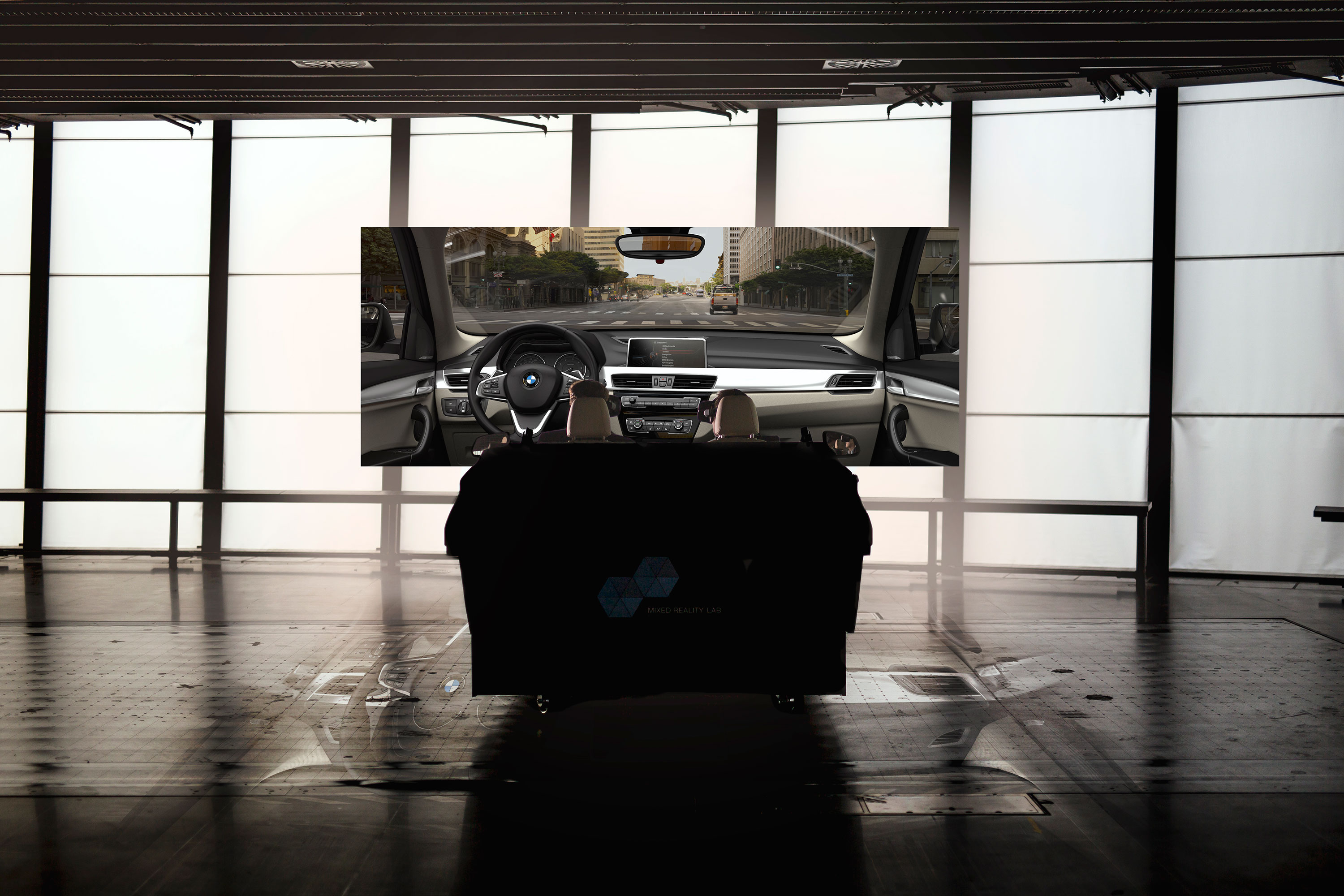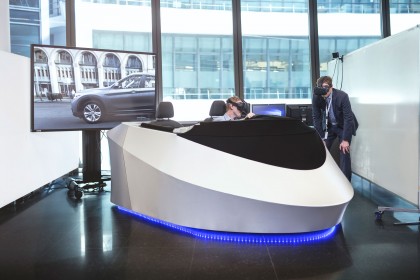BMW straps on the HTC Vive to speed up car development
Yes, it can play Crysis

BMW chose the HTC Vive as its virtual reality headset of choice for its vehicle development workstations, proving that VR is more than just for gaming. The company plans on incorporating VR in the early vehicle development process to aid interior design and global collaboration.
With the VR systems, BMW designers can quickly tweak drafts and collaborate with others around the world without physically building the parts, saving time and money. But BMW isn't just strapping a Vive headset to developers and letting them have their way in the virtual world; there's a physical component to its development systems as well.
This includes a real interior that designers sit in, which is realistically shaped for precise acoustics and feel so BMW can pipe faux engine noises through the speakers. The VR world BMW uses is powered by Unreal Engine 4 and lets designers simulate driving through a city, determine blind spots of potential designs, and test out ergonomics and comfort with photo-realism -- all without building a $30,000 clay model.
All of this requires precise motion tracking, which is a major benefit of the HTC Vive versus the Oculus Rift. HTC's Vive Lighthouse tracking system helps follow each precise movement to completely immerse the designer in their work.
It runs on a high-end gaming rig powered by an Intel Core i7 processor and two NVIDIA GeForce GTX Titan X graphics cards, which BMW claims is water-cooled and overclocked. There's no Xeon or Quadro powering these VR systems, which is a drastic departure from the typical professional workstations.
The HTC Vive isn't BMW's first VR tango, however. Virtual reality has been part of BMW's vehicle development process since millennials started kindergarten in the 1990s, but the HTC Vive and high-end gaming rigs occupy much less space than the behemoth systems of the past and costs much less, too.

While this is a major win for the HTC Vive in the new VR battle, BMW isn't quite ready to put a ring on it yet and treats it as an open relationship. The company plans to regularly explore other options by evaluating new hardware and software to keep up with advancements.
Get daily insight, inspiration and deals in your inbox
Sign up for breaking news, reviews, opinion, top tech deals, and more.
I find this really cool, because it opens up the possibilities for work-from-home collaboration across the globe. Imagine a world where a designer can take feedback from colleagues and instantly change it for everyone to see.
Meetings can take place in a virtual space instead of boardrooms and everyone can have a dedicated VR system in their home office to review designs. Or if you think beyond the HTC Vive, the experience can be downsized to run on a Samsung Galaxy Gear VR or Google Cardboard, so others in the company can see what you're working on.